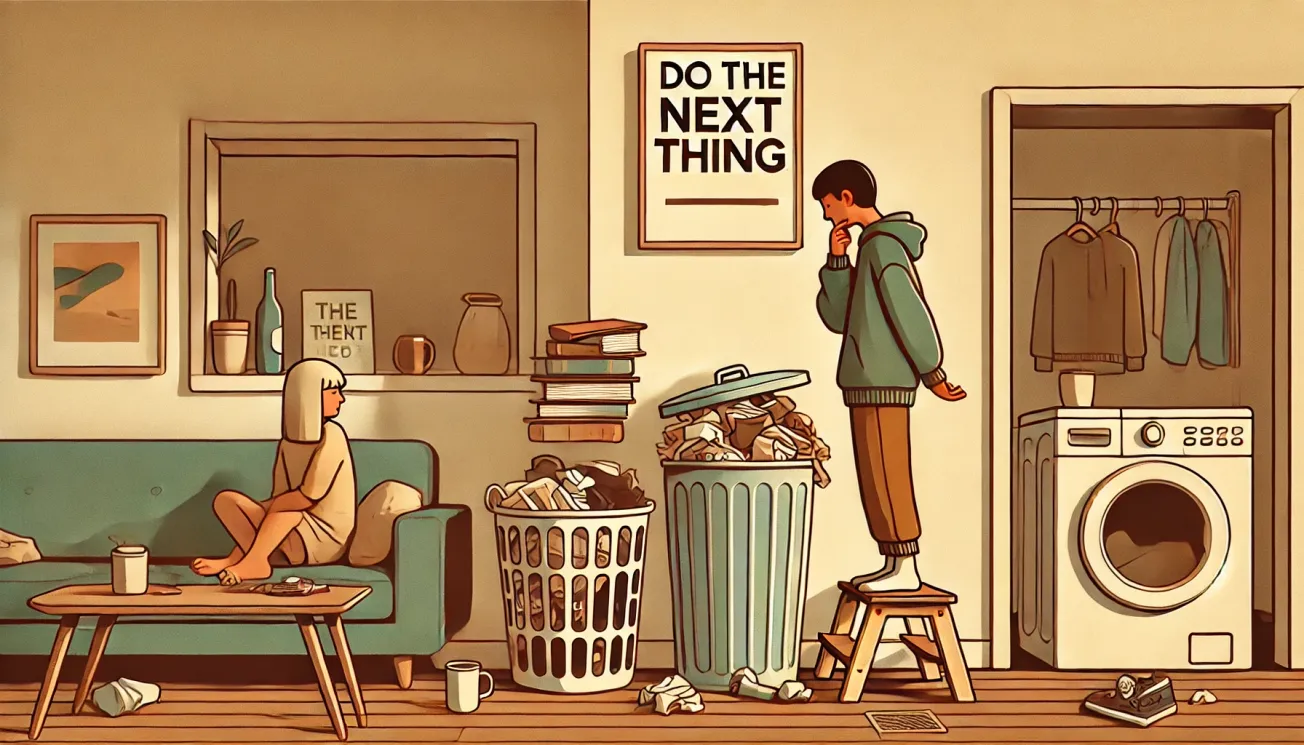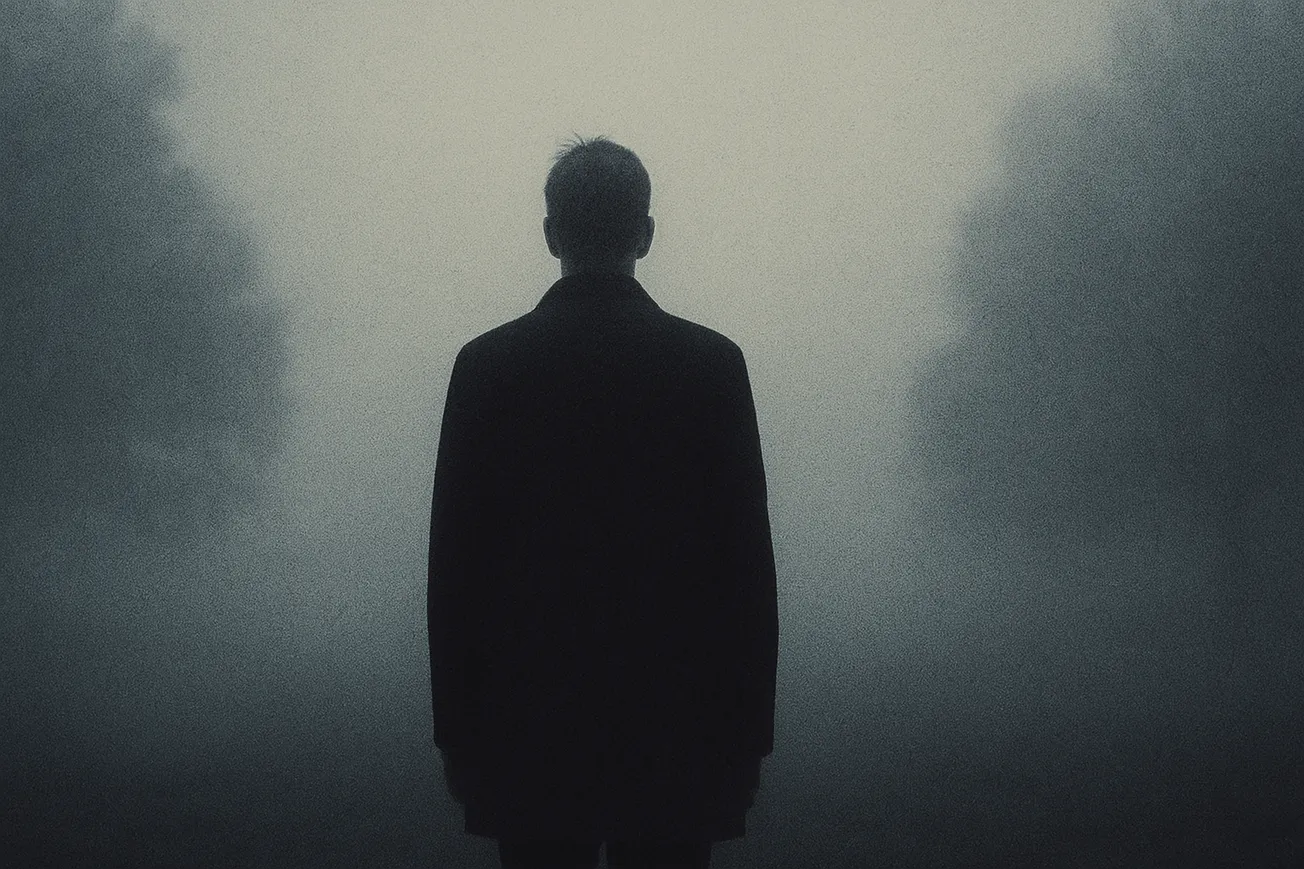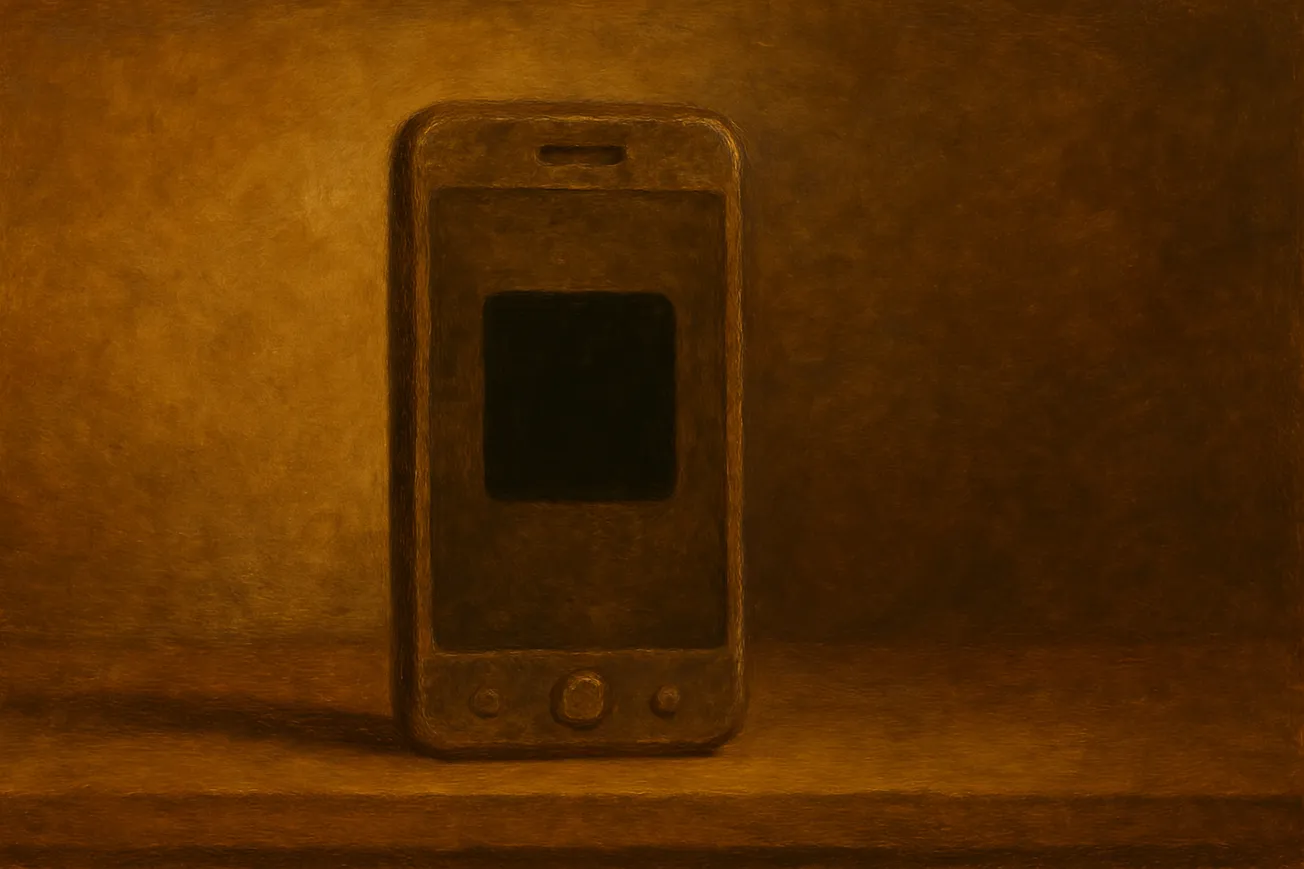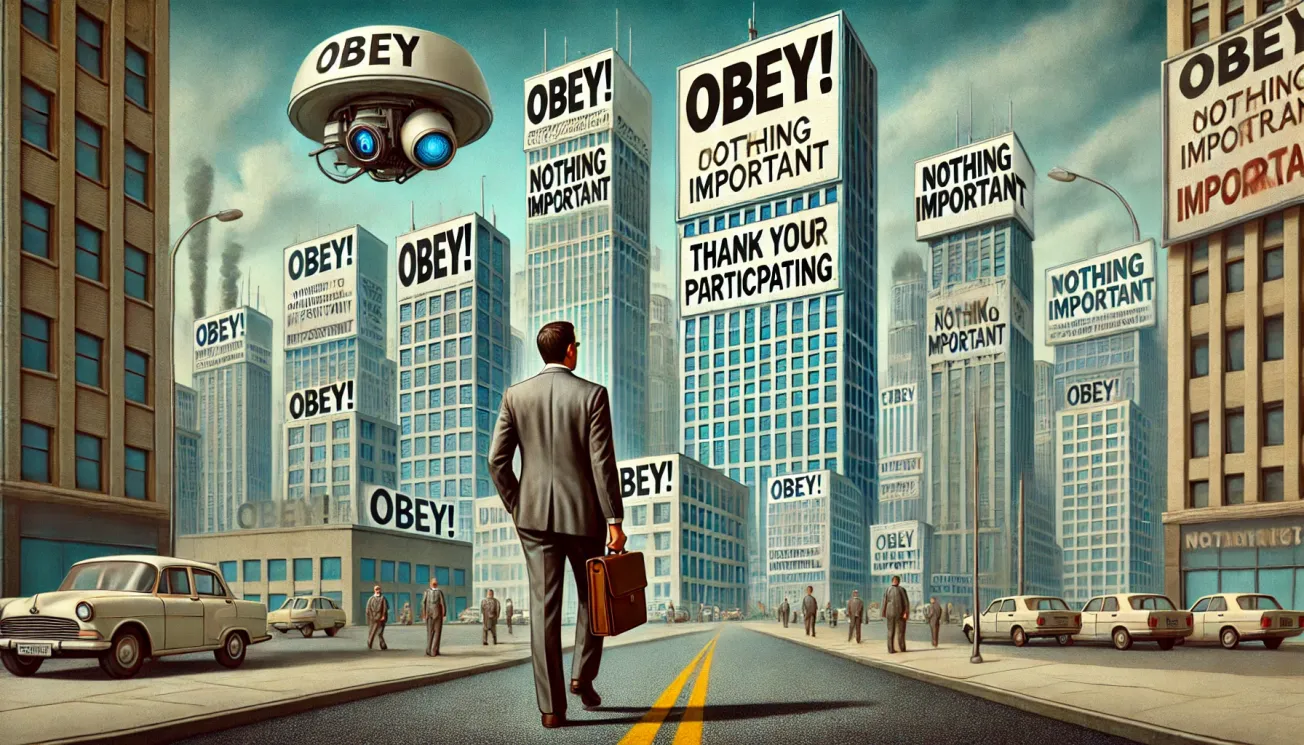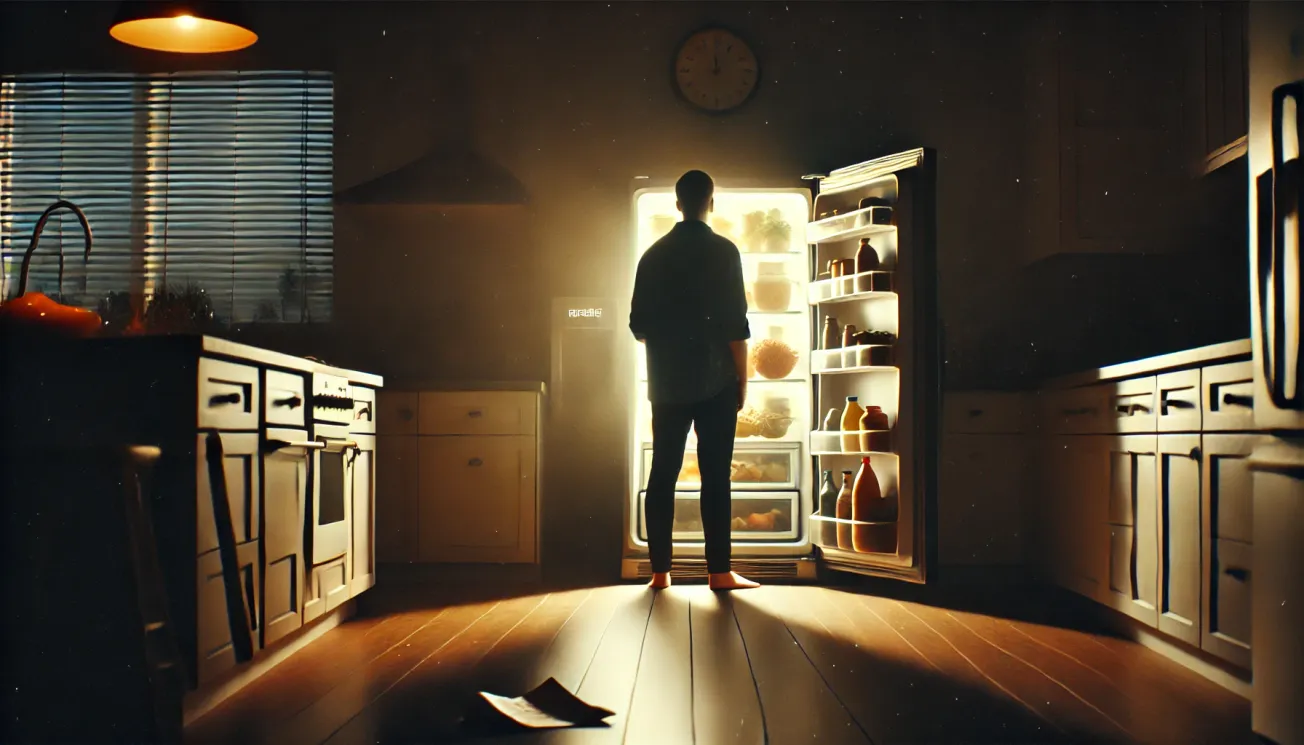Table of Contents
Chapter One: The Problem With People Like Me
The problem with people like me is that we don’t actually know what we want.
No, that’s not quite right. The problem with people like me is that we think we know what we want, but we’re almost always wrong.
Wait. That’s not right either. The real problem—the central, inescapable flaw in my operating system—is that I have spent my entire life refining an elaborate, highly convincing internal narrative about what I want and what I need, and none of it is true. But I believe it anyway, because, well, what else am I supposed to believe?
This becomes an issue when other people try to help me.
Take Aaron.
Aaron is what you might call a fixer. The kind of person who walks into a messy situation and immediately starts stacking dishes and organizing chaos into a series of neatly labeled boxes. The kind of person who hears a friend say, I’m falling apart, and doesn’t waste time asking why?—he just starts piecing them back together.
So when I, in a moment of unchecked vulnerability, mentioned that I was struggling, Aaron took this as an assignment. He put his hands on his knees, leaned forward, and said, “Alright. What do you need?”
This is a dangerous question to ask someone like me.
What I needed was probably something simple: sleep, exercise, fewer hours of online discourse.
But what I said I needed was far more complicated. I said things like:
- A fresh start in a city where no one knows me, ideally one with seasons.
- A structured daily routine, but without the oppressive rigidity of a schedule.
- To be left alone, but also to feel deeply connected to people who understand me on a profound, soul-level.
- A complete reinvention of my personality, but one that feels natural and effortless.
- An overarching sense of purpose, but without the burden of actually committing to anything.
Aaron nodded, taking this in.
Then he sighed and said, “You know that’s all bullshit, right?”
This was deeply offensive.
“Excuse me?” I said. “How would you know what I need?”
Aaron sighed in the way people sigh when they are about to say something infuriatingly reasonable.
“Because you’ve been saying the same stuff for years. If any of those things actually fixed anything, you’d be fine by now.”
I wanted to argue, but he had a point. Which was extremely rude of him.
Instead, I tried to regain control of the narrative.
“Okay, then. What do I need, since you apparently know me better than I know myself?”
Aaron leaned back, crossed his arms, and said, “You need to do something boring.”
I blinked. “What?”
“You need to stop waiting for some grand, cinematic moment of clarity and just do something boring but productive. Laundry. Cooking. Walking around outside. Something that doesn’t require a spreadsheet, a life plan, or a crisis of meaning.”
This was deeply upsetting.
Aaron was supposed to validate my overcomplicated, abstract needs and agree that my problems were impossibly intricate.
He was not supposed to suggest that the answer to my existential spiral was something as mundane as making a goddamn sandwich.
“Absolutely not,” I said, with the dignity of someone rejecting an indecent proposal.
“I refuse to let a grilled cheese sandwich solve problems that a decade of therapy couldn’t touch.”
Aaron shrugged, stood up, and started making me a sandwich anyway.
This was a violation of my autonomy.
Also, it smelled really good.
Chapter Two: The Inevitability of Cheese-Based Solutions
The problem with people like Aaron is that they are almost always right, and they almost never let you forget it.
I sat on the couch, arms crossed, watching him rummage through my kitchen like some kind of culinary home invader. The worst part was that he looked comfortable in there, as if he belonged in my space, as if he had every right to rearrange my suffering into something as offensively ordinary as a meal.
“This isn’t fair,” I said.
Aaron pulled out a frying pan. “What isn’t?”
“I’m in crisis.”
“I know.” He unwrapped a block of cheese. “That’s why I’m making you food.”
“You’re reducing my suffering to a solvable problem.”
He turned the stove on. “It is a solvable problem.”
I exhaled sharply, the way people do when they want to make it very clear that they are deeply burdened by the stupidity of others. “You’re just doing things without letting me process.”
Aaron dropped a slab of butter into the pan. “Your processing phase has lasted, what, two years?”
“That’s an oversimplification.”
“But not inaccurate.”
I narrowed my eyes at him. He ignored me, focused on slicing cheese with the casual precision of someone who knew he was winning.
Aaron had a way of dismantling my self-pity with the casual brutality of a person who has never had a true existential crisis of his own. He wasn’t cruel about it—just efficient. And efficiency was the last thing I wanted when it came to my problems.
Because when you struggle long enough, you start believing your suffering is special. That it’s too layered, too intricate, too uniquely yours for anything as mundane as “food” or “sleep” to fix.
But then someone like Aaron comes along and makes you a sandwich.
And the worst part—the absolute worst part—is that it works.
The first bite was an insult. The kind of buttery, crispy, absolutely perfect ratio of cheese-to-bread that made my entire argument crumble in my hands. It was infuriatingly good. Which meant Aaron was infuriatingly right.
I tried to fight it. This was just a biological trick. A sleight of hand by my own blood sugar. None of this meant my suffering was any less valid.
I took another bite.
...Goddammit.
Aaron sat down across from me, looking insufferably pleased with himself.
“So?” he said.
I glared at him. “I still think my problems are bigger than this.”
“Probably,” he said. “But you can’t solve big problems if you’re falling apart over small ones.”
I sighed.
I was still me. Still tangled in the same contradictions, still convinced that I was a uniquely difficult case.
But for now, I had a sandwich.
Chapter Three: The Fallacy of Being a Special Case
The thing about eating a sandwich made by someone who is right about your life is that it forces you to make a choice.
Option A: You acknowledge that a simple, tangible solution helped you, and by extension, admit that maybe—not definitely, but maybe—your problems are not as uniquely complex as you have always insisted.
Option B: You double down.
I chewed, weighing my options.
Aaron watched me like a scientist observing a lab rat approaching a lever.
“Thinking real hard over there,” he said.
“I’m deciding whether or not to learn from this experience,” I admitted.
He grinned. “How’s that going?”
“Not well.”
Aaron leaned back in his chair, satisfied. He didn’t need me to say anything else. He had already won.
And I hated that.
“Okay,” I said, trying to regain some sense of control, “but this doesn’t change the bigger picture. I still need a plan.”
Aaron tilted his head. “A plan for what?”
“For fixing my life.”
“Ah.” He scratched his chin. “You mean the life that was unfixable five minutes ago?”
I scowled. “You’re enjoying this too much.”
“A little.”
I sighed. “I just don’t want to be one of those people who mistake minor improvements for actual progress.”
Aaron’s face did something I didn’t like. It softened.
I would have preferred if he had laughed at me.
“Listen,” he said, voice suddenly more patient than it had any right to be. “I know you think of yourself as a special case.”
I immediately bristled. “I don’t—”
“You do.” He cut me off, not unkindly. “And look, I get it. But the way I see it, you’re at a crossroads. Either you keep treating your problems like some abstract, unsolvable mess that requires a perfect plan before you can do anything… or you just start.”
I hated that. I hated how easy he made it sound.
I wanted to tell him that I wasn’t a special case, that I knew I was just another aimless, overthinking person who had been seduced by their own narrative. But saying it out loud felt like surrender.
So I did what any emotionally stunted person would do.
I finished my sandwich in silence.
Aaron let me. He knew that I needed time to sit with it, to process the unsettling possibility that maybe I had spent years waiting for a perfect fix when a good enough fix had been sitting in front of me the whole time.
Eventually, I set my plate down and said, “I still think I need a plan.”
Aaron smirked. “Of course you do.”
“Just, you know. Maybe a small one.”
Aaron nodded like this was the most natural thing in the world. Like I hadn’t just had a revelation.
“Alright,” he said. “What’s step one?”
I opened my mouth. Closed it. Thought about it.
“…Laundry.”
I muttered it like I was admitting guilt in a court of law. Then I scrambled for an escape route. “But that doesn’t mean I’m abandoning the bigger picture. I still might need to flee the country.”
Aaron grinned. “Great choice.”
I groaned and stood up, dragging my feet toward the overflowing hamper in the corner of my room.
Behind me, Aaron stretched, his job here done. Like a mechanic wiping his hands after fixing a car that had been pretending to be totaled.
Chapter Four: The Laundry Gambit
Laundry is the kind of thing that only feels impossible until you’re actually doing it.
I knew this. It wasn’t like I had never done laundry before. I wasn’t feral. I just… avoided it. The way some people avoid responding to emails. The way I avoided most things that made me feel like a responsible adult.
So when I found myself lugging an overflowing hamper toward the washing machine, I wasn’t overwhelmed. I was just annoyed.
Aaron, of course, didn’t say a word. He just leaned against the counter, watching me like a man witnessing a long-awaited prophecy unfold.
I loaded the machine with theatrical resentment.
“Okay,” I muttered. “I’m doing the thing.”
Aaron nodded.
“I hope you’re satisfied.”
“Deeply.”
I poured in detergent. Pressed a few buttons. The machine beeped approvingly.
I turned back to Aaron. “That’s it?”
“That’s it.”
I stood there. The washing machine rumbled to life. I waited for something—some immediate sense of accomplishment, a dopamine rush, a shift.
Nothing.
“So what now?” I asked.
Aaron shrugged. “Now you wait.”
I blinked. “And?”
“That’s it.”
I exhaled sharply. “Jesus. No wonder people hate chores.”
Aaron smirked but said nothing.
I looked around the room, suddenly restless. I had expected momentum from this—some chain reaction of competence that would carry me straight into productivity, but instead, I was just… waiting.
Waiting with nothing to do.
I crossed my arms. “What do people normally do while waiting for laundry?”
Aaron, ever helpful, shrugged. “Whatever they want.”
I frowned. “Be specific.”
He gave me a deeply unhelpful look. “You know, stuff. Read a book. Watch TV. Stare out a window and think about life. Normal things.”
I immediately reached for my phone.
If I wasn’t doing something big, I could at least optimize the waiting period. Check emails. Make a to-do list. Read an article about habits of highly successful people.
I stopped myself.
…Maybe that was the problem.
For the past few years, my free time had been consumed by either feeling like I wasn’t enough or convincing myself I needed some massive, dramatic change to fix it.
If I wasn’t replaying my failures in my head, I was building elaborate, impossible escape plans—moving to another country, deleting my entire digital footprint, reinventing myself as someone more impressive.
But now?
Now I had thirty-five minutes to kill.
And no existential crisis to fill it.
I stared at the shelf near the couch. There were books there. Books I had bought in moments of aspiration but never actually read.
I pulled one down. Opened it.
It felt... strange.
Not like an escape, not like avoidance.
Just something to do.
And weirdly, it did sound like a good idea.
So I sat down and read.
No grand revelation. No sudden transformation.
Just me, a book, and a washing machine humming softly in the background.
Chapter Five: The Productivity Trap
Here’s the thing about momentum: it’s addictive.
One day, you’re a person who has to be bribed, tricked, and emotionally manipulated into doing laundry. The next, you’re staring at a freshly folded pile of shirts, thinking: Maybe I’m a functional person now.
Maybe I had unlocked something. Maybe I had transcended mediocrity with a single load of laundry. Maybe I was one well-timed decision away from becoming an unstoppable force of competence.
This is how I ended up texting Aaron:
ME: I think I just solved my entire life.
To which he replied, immediately:
AARON: Oh no. You’re doing a thing again, aren’t you?
I ignored this. I was high on competence and wasn’t about to let logic ruin it.
I grabbed a notebook, sat down at my desk, and did what every recovering existential crisis addict does when they get a taste of productivity: I made a plan.
Not just any plan. The Plan. The Fix Everything Plan.
Phase One: Optimization
- Wake up at 5 AM.
- Drink water first thing in the morning (this would somehow change my entire life).
- Go for a run, even though I have never enjoyed running.
- Read a book every day (since I was apparently a reader now).
- Eat a healthy, protein-based breakfast that required actual cooking.
Phase Two: Reinvention
- Overhaul my entire wardrobe.
- Start a new hobby (unspecified, but probably woodworking).
- Revise my entire digital presence so I looked like someone who had always had their life together.
Phase Three: The Grand Life Transformation
- Write a novel.
- Get financially independent.
- Become the kind of person who gives effortless, wise advice to others.
- Maybe start meditating.
I sat back, admiring my work.
It was all so clear now. I just needed to stack good decisions on top of each other and never make mistakes again.
Aaron, still concerned, texted again:
AARON: What exactly do you think you solved?
ME: Everything. I’m unstoppable now.
AARON: Okay. Just… pace yourself.
ME: Haha yeah for sure.
ME: Anyway I’m waking up at 5 AM tomorrow and overhauling my entire existence.
Aaron responded with a single thumbs-up emoji. Which was deeply condescending but ultimately irrelevant because I was about to become a completely different person.
The Collapse
By 5:07 AM the next morning, my entire life plan was in shambles.
Historians would later refer to this as The Great Collapse, an event triggered by one (1) snoozed alarm and the immediate erosion of all self-discipline.
The alarm had gone off at 5 AM, as scheduled. But the version of me who had written The Plan was not the same version of me that had to physically get out of bed.
The me who had written the plan was an ambitious visionary. The me in bed was a creature of flesh and regret.
I hit snooze. Then again. Then I gave up entirely.
When I finally woke up, four hours later, the weight of failure hit me immediately.
If I couldn’t even wake up on time, how could I possibly execute The Plan?
If I couldn’t execute The Plan, how could I possibly fix my life?
And if I couldn’t fix my life, then wasn’t Aaron right?
Wasn’t I just a person who needed a sandwich and some laundry instead of a total reinvention?
This thought was unacceptable.
So, like a rational person, I doubled down on my failure.
I stayed in bed, ignoring texts. I skipped breakfast. I didn’t read.
I let one failed morning turn into total personal collapse.
By noon, I had fully spiraled.
By 3 PM, I was Googling one-way flights to another country.
By 5 PM, I had convinced myself that I was, in fact, uniquely doomed.
And by 7 PM, Aaron called me.
I answered, voice hoarse from a full day of doing absolutely nothing.
“…Hello?”
Aaron sighed. “How bad is it?”
“I might need to flee the country.”
“Yeah. I figured.”
There was a long pause.
Then, gently, he asked, “Do you want to tell me what actually happened?”
I closed my eyes.
I wanted to say that I was fundamentally incapable of change. That my brain was wired wrong. That I had proven, definitively, that I was beyond help.
But instead, I said:
“…I didn’t wake up at 5 AM.”
Aaron waited. I waited.
It hung there, ridiculous in its smallness.
Then he said, “Okay.”
And just like that, the world did not end.
I let out a slow breath.
“I really thought I had it this time,” I admitted.
Aaron didn’t sound smug. He just sounded calm. “Yeah. I know.”
There was another pause. Then:
“What do I do now?” I asked, quietly.
Aaron exhaled, like he had been waiting for this.
“You do the next thing.”
I rolled my eyes. “Like what?”
Aaron sighed. “Have you had any water today?”
I blinked. “…Water?”
“Yes. That thing humans need to function.”
“I mean… probably?”
Aaron just waited.
I groaned. “Fine.”
I still wasn’t convinced that something this stupidly small counted as real progress. But I got up anyway.
And, against all odds, I drank a glass of water.
Chapter Six: The Relapse and the Reckoning
The problem with doing the next thing is that it’s never enough.
After my failed attempt at total life reinvention, I told myself I would take a reasonable, incremental approach to progress. No more grand, sweeping transformations. No more self-imposed life overhauls.
And for a few days, it worked.
I drank water. I read. I ate food that wasn’t just caffeine and regret.
It was fine.
Which, unfortunately, was when my brain decided to ruin everything.
The Relapse
It started as a small thought. Just a flicker.
Is this it?
Not in a dramatic, life-is-meaningless way. More in a wait, this feels weirdly underwhelming way.
Because I had been waiting for something to happen.
For the clarity to hit.
For the shift to arrive.
For a defining moment where I would suddenly understand myself perfectly and emerge as someone effortless and whole.
Instead, I had… a slightly cleaner apartment and a mild sense of stability.
It felt wrong.
It felt too easy.
It felt like I was cheating by making progress in ways that weren’t impressive enough.
What happened to the plan?
What happened to reinventing myself?
What happened to grand gestures and massive life changes?
By the time I realized what was happening, I was already spiraling.
By noon, I was back on the internet, researching dramatic options.
By 2 PM, I was deep into a Google hole titled “How much does it cost to move to Iceland.”
By 5 PM, I had half-convinced myself that my “small steps” approach was a lie and that I needed to do something drastic to escape mediocrity.
By 6 PM, I was staring at my notes app, drafting a half-coherent manifesto about how I needed to disappear for a while, maybe start over somewhere with fewer expectations.
I deleted it. Then rewrote it. Then deleted it again.
By 7 PM, Aaron called me.
Again.
The Reckoning
I answered with a sigh. “…I’m spiraling again.”
“I figured.”
I groaned. “Why are you always calling at the worst possible time?”
“Because your worst possible times are stupidly predictable.”
This was deeply unfair.
Aaron waited.
I rubbed my forehead. “Okay, fine. Do your thing.”
“My thing?”
“Yes. The thing where you calmly and annoyingly explain why I’m being an idiot.”
Aaron sighed. “Alright. Let’s break this down. What’s the crisis this time?”
I hesitated. I didn’t want to say it.
But I also knew that if I didn’t, he would just wait.
“…I feel like I’m not doing enough.”
Aaron hummed. “Okay. And what exactly would ‘enough’ look like?”
I hesitated again. Then, reluctantly:
“I don’t know.”
He exhaled. “Right.”
There was a long pause.
Then Aaron, in a voice that was still calm but also slightly sharper than usual, said:
“You know what your actual problem is?”
“Oh good, here we go.”
“You think life is supposed to feel bigger than it does.”
I frowned. “That’s not—”
“No, listen. You think that if you don’t feel some massive shift, then you’re doing something wrong. You think progress is supposed to be loud. But it’s not.”
I opened my mouth. Closed it.
Because the worst part was that he wasn’t wrong.
Aaron wasn’t done. “You’ve been waiting for this big, dramatic moment where you become a different person. But what if that moment never comes?”
I swallowed. “That’s depressing.”
“It’s actually the opposite of depressing.”
I stayed quiet.
Aaron sighed. “Look, man. This is it. This is life. It’s small, boring things, stacked on top of each other. It’s laundry. It’s sandwiches. It’s reading a book while you wait for something else to finish.”
I thought of that old saying.
Before enlightenment, chop wood, carry water. After enlightenment, chop wood, carry water.
I hated how much sense it made.
Maybe I had been waiting for something big to change me when, in reality, change was just... chopping wood. Carrying water.
Or, in my case, taking out the trash.
My throat felt tight. I didn’t know why.
I shifted the phone to my other ear. “…So you’re saying I should just keep doing this. Even if it feels like nothing.”
“Yes.”
I exhaled.
Aaron waited.
I almost fought it. I almost told him that I was a special case, that he didn’t understand, that my problems were uniquely complex and required a solution that was bigger, smarter, and more profound than all this.
But I didn’t.
Instead, I said, very quietly:
“…Okay.”
Aaron let out a slow breath, like he’d been waiting a long time to hear that.
“Good,” he said. “Now. Do the next thing.”
I rolled my eyes. “Like what?”
Aaron smirked. “Like whatever is next.”
I sighed, glancing around. My eyes landed on an overflowing trash can in the corner of the room.
“Fine,” I muttered.
Before I could overthink it, I got up, grabbed the bag, and took it outside.
It wasn’t a breakthrough. It wasn’t a grand step toward personal evolution.
But the trash was gone.
Chapter Seven: The Stupid, Ordinary Truth
The thing about taking out the trash is that nothing happens after.
No applause. No rush of clarity. No cosmic acknowledgment that I had done something significant.
I just walked back inside.
And, for the first time in a long time, I didn’t immediately search for the next crisis.
I sat down. Waited.
It felt... weird.
And my brain? My brain hated it.
It searched for something to stress about, some urgent unfinished task to justify breaking the silence. But there was nothing.
Just me. Sitting there. Existing.
And somehow, that was… fine.
Aaron’s Last Call
A few days later, Aaron called again.
I answered with a perfectly normal, non-dramatic greeting, which I knew would throw him off.
“…You sound suspiciously fine,” he said.
“I know. It’s weird.”
“What did you do?”
I shrugged, even though he couldn’t see it. “Not much.”
“Lies.”
“No, seriously. I took out the trash. Sat around. Drank some water. Just… existed.”
Aaron let out a slow exhale, like someone watching a complicated puzzle finally fall into place.
“Well,” he said. “Would you look at that.”
I rolled my eyes. “Don’t be smug.”
“I’m not smug,” he said, definitely smug.
“You’re very smug.”
“Just a little.”
We sat in comfortable silence for a second.
Then Aaron, casually: “You know you’re still going to overthink things sometimes, right?”
I didn’t respond right away.
Not because I was fighting it. But because—for the first time—I actually believed it.
And that felt… kind of big.
“…Yeah,” I said finally. “I know.”
Aaron, satisfied, just said, “Good.”
Then, like it was nothing: “So. What’s next?”
The Stupid, Ordinary Truth
And then, quietly, I just… did the next thing.


